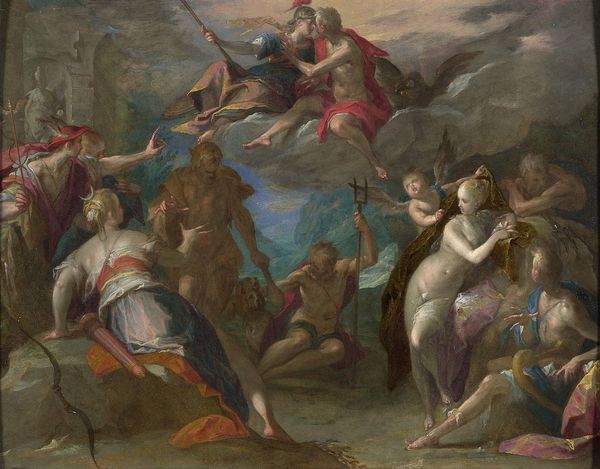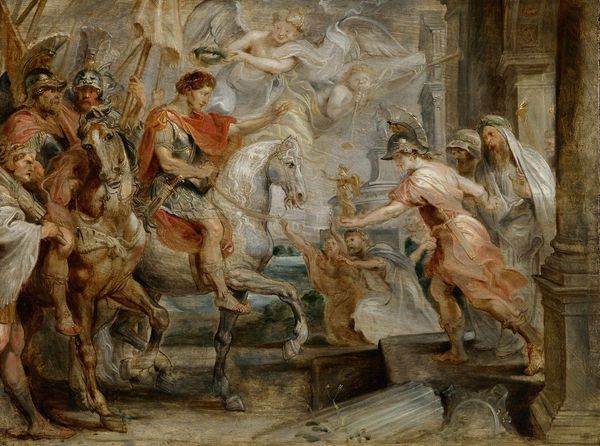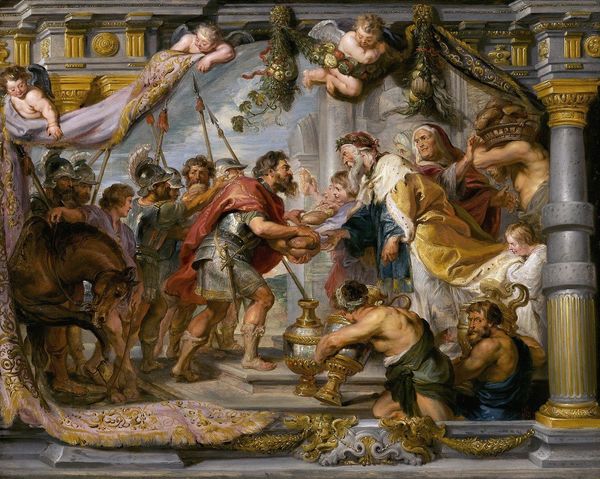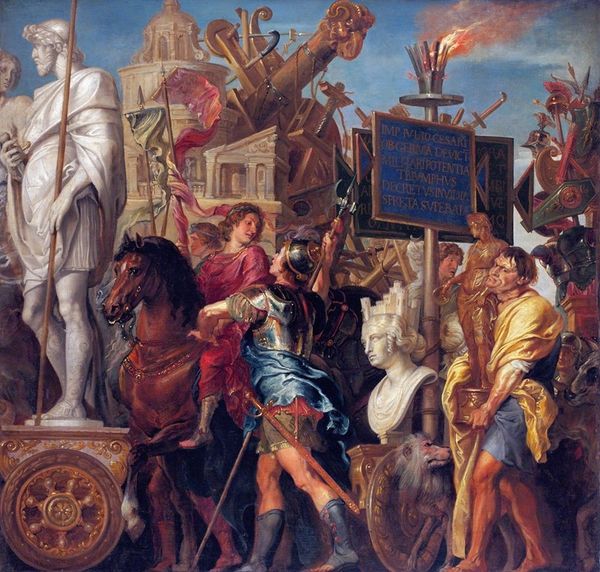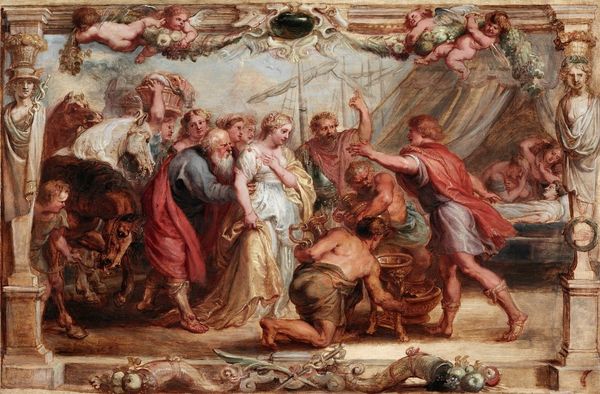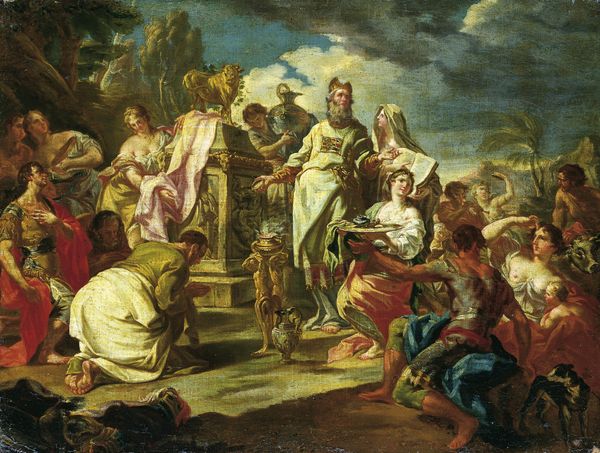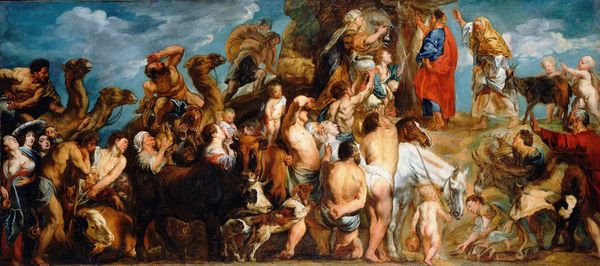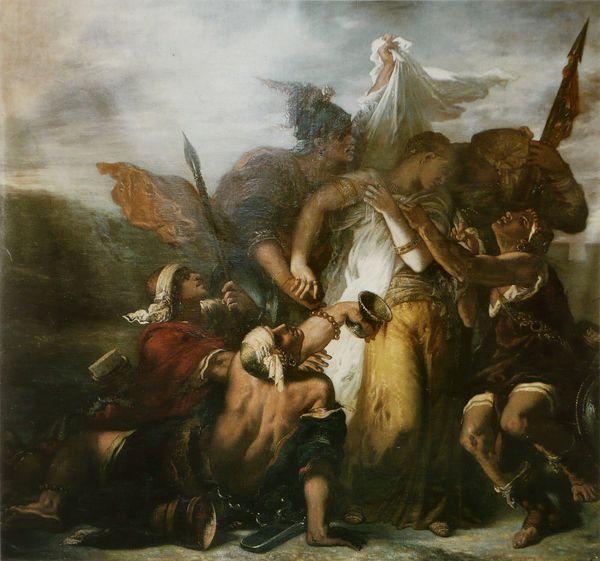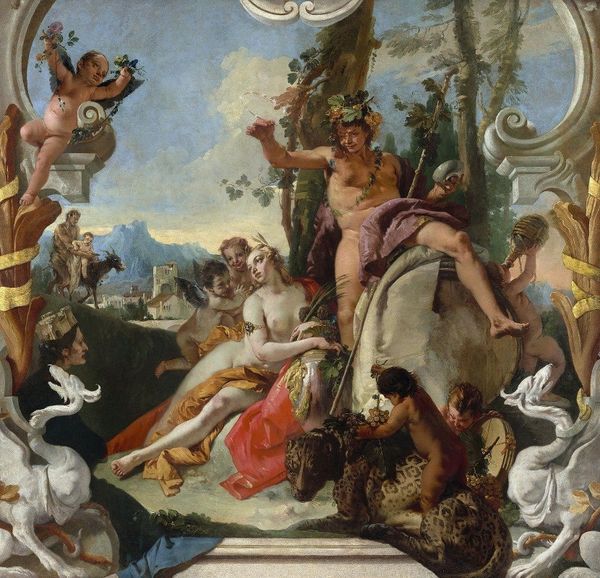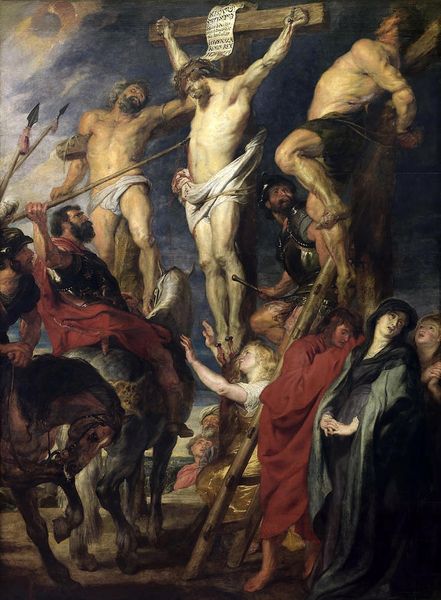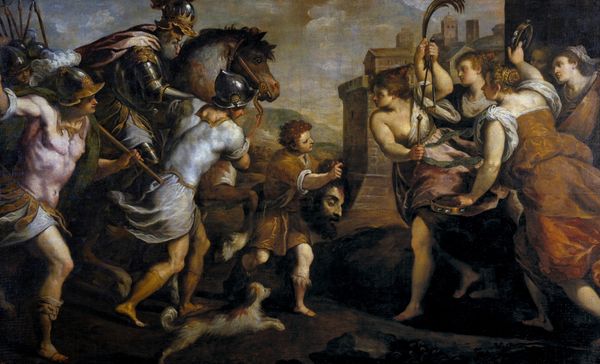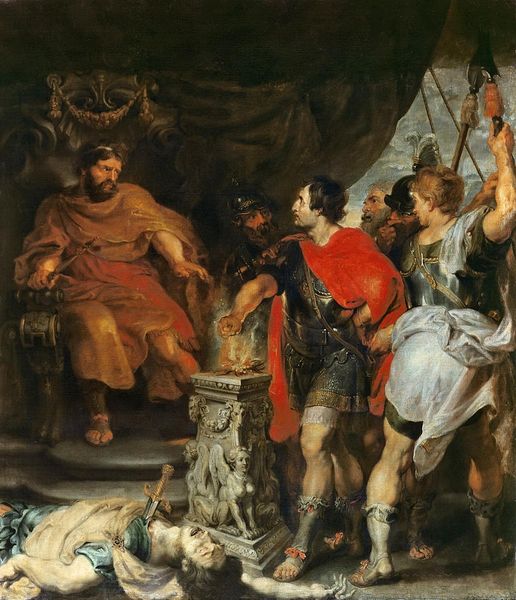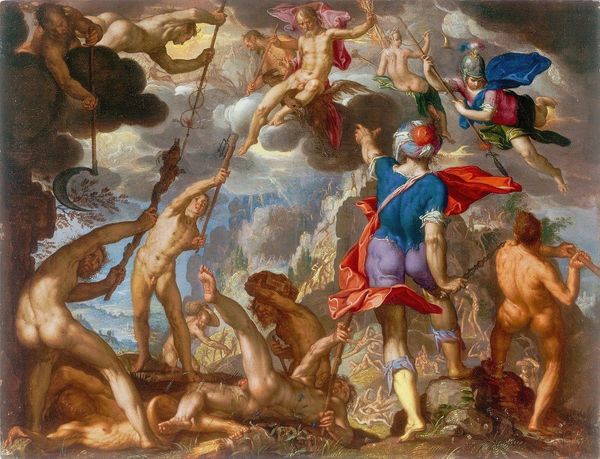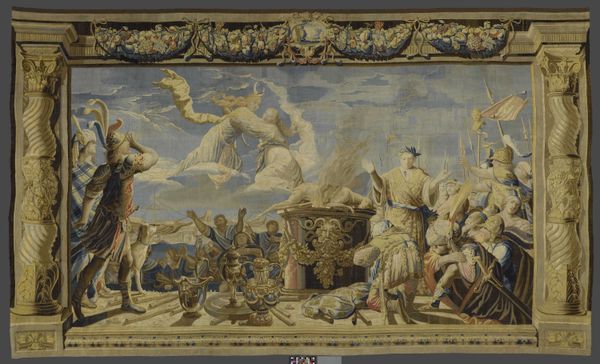
painting, oil-paint
#
figurative
#
allegory
#
narrative-art
#
baroque
#
painting
#
oil-paint
#
painted
#
figuration
#
oil painting
#
history-painting
#
academic-art
#
mixed media
Copyright: Public Domain: Artvee
Curator: Rubens' oil on canvas, "Decius Mus Addressing the Legions," circa 1616, offers a compelling view into classical heroism. Editor: My immediate feeling is one of calculated grandeur. There's a theatrical quality – the commanding figure on a plinth, the eagle overhead…it feels very staged. Curator: It is staged, in a sense. Rubens was a master of conveying power. Think about the visual rhetoric: Decius, elevated, is clearly marked out as a leader; look how he commands the legions with such authority. The Roman eagle oversees the whole affair, a nod to a mighty past. Editor: The eagle is a fascinating choice. Beyond its association with Rome, the eagle has forever stood as a symbol of vision and victory, even pride – a powerful emblem for Decius as he motivates the legions. It projects a divine sanction for their actions. Is it meant to distract the public away from historical context by focusing more on the man himself? Curator: Rubens likely draws from Livy's accounts, specifically the story of Decius Mus, a Roman consul who vowed to sacrifice himself in battle for a Roman victory. Here is this moment before such noble sacrifice. The political weight of this narrative is substantial, particularly when considered during Rubens' time. The ruling houses wanted images of power. Editor: Absolutely. You notice the standard-bearers, too, clutching fasces of power but it also adds to that imposing impression; however, it appears less like the sacrifice he’s making for the glory of the nation as the individual hubris he’s conveying. Curator: Well, I don't necessarily see hubris, more so determination, with almost a hint of somber resolve. Remember, in commissioning these works, the patron had expectations that needed to be met. Editor: And you think Rubens is delivering upon these demands? Curator: I believe so, because what we're truly witnessing is the strategic employment of symbolism and historical narrative to promote the values, and therefore, the political legitimacy of leaders then, and, arguably, even now. It speaks of glory, legacy, and the state! Editor: Indeed! Examining how the symbolic meaning enriches the socio-historical meaning opens up a different appreciation for this artwork! Thank you.
Comments
No comments
Be the first to comment and join the conversation on the ultimate creative platform.
